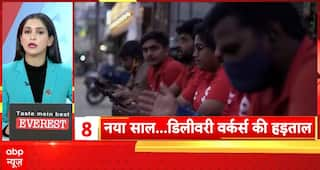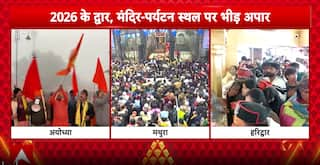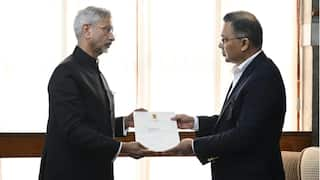Bombay HC Strikes Down Amended IT Rules Proposing Fact Check Units Against Fake Content About Govt
The Bombay High Court struck down the 2023 IT Rules amendments, which gave the government authority to establish Fact Check Units (FCUs).

The Bombay High Court struck down the amended Information Technology (IT) Rules that sought to identify and regulate "fake and false" content on social media platforms concerning the government, declaring the provisions unconstitutional. Justice A S Chandurkar, serving as a 'tie-breaker judge', delivered the landmark ruling after a division bench had delivered a split verdict in January 2024.
The court held that the amended rules, particularly Rule 3(1)(b)(5) regarding the establishment of a Fact Checking Unit (FCU), were vague, overbroad, and had the potential to cause a chilling effect on individual expression and social media intermediaries, news agency PTI reported.
Justice Chandurkar emphasised that the amended rules violated several constitutional provisions, including Article 14 (right to equality), Article 19 (freedom of speech and expression), and Article 19(1)(g) (freedom to practise any profession). He declared Rule 3(1)(b)(5), which granted the FCU the power to flag misleading or false content related to the government, as ultra vires to the Constitution.
The court's decision followed petitions filed by stand-up comedian Kunal Kamra, the Editors Guild of India, the News Broadcast and Digital Association, and the Association of Indian Magazines, who had challenged the amendments. They argued that the rules would have a chilling effect on fundamental rights, particularly the right to free speech.
FCU Would Essentially Act As ‘Arbiter In Government's Own Cause’: Bombay HC
The court sided with the petitioners, agreeing that the rule in question lacked clear guidelines and had the potential to restrict the freedom of speech guaranteed under Article 19(1)(a) of the Constitution. Justice Chandurkar noted, “Under the right to freedom of speech and expression, there is no further right to the truth, nor is it the responsibility of the State to ensure that citizens are only exposed to information that is not fake or false or misleading.”
He further pointed out that the government’s unilateral authority to declare online content as fake or misleading was problematic, as the FCU would essentially act as "an arbiter in the government's own cause". PTI reported. The court also criticised the lack of clarity in defining terms such as "fake, false or misleading" and emphasised that the same standards should apply to both digital and print media.
The petitions against the rules were initially heard by Justices Gautam Patel and Neela Gokhale, with Justice Patel ruling that the regulations amounted to censorship, while Justice Gokhale maintained they did not significantly impact free speech. Justice Chandurkar ultimately sided with Justice Patel, stressing the need to safeguard citizens' fundamental rights.
The contentious amendments were introduced by the Union government on 6 April 2023, through the Information Technology (Intermediary Guidelines and Digital Media Ethics Code) Rules, 2021. These provisions granted the FCU authority to flag online content related to the government as misleading or false, compelling social media platforms to either remove such content or face legal action by forfeiting their safe harbour immunity.
Earlier, in March 2024, Justice Chandurkar had refused to grant an interim stay on the establishment of the FCU, following which the Union government notified its creation. However, the Supreme Court later stayed this notification pending the final disposal of the petitions, citing the serious constitutional issues raised by the matter.
ALSO READ | Tirupati Laddus Row: Health Ministry Asks For Report From Andhra CM Naidu
Opposition To 2023 IT Rule Amendments
The 2023 amendments required social media intermediaries like 'X' (formerly Twitter), Instagram, and Facebook to either take down flagged content or add a disclaimer after the government’s FCU identified information as fake or misleading. Petitioners, however, argued that these rules violated fundamental rights, particularly the right to equal protection under the law (Article 14) and the freedom of speech (Articles 19(1)(a) and 19(1)(g)), Live Law reported.
Political satirist Kunal Kamra, who relies on social media to share his content, was one of the petitioners. He argued that the rules could lead to arbitrary censorship of his posts, resulting in his content being blocked or his accounts suspended.
The Ministry of Information and Technology defended the amendments, stating that it was in the public interest for “authentic information” related to the government's business to be fact-checked and disseminated. They emphasised the need to contain potential harm caused by misinformation.
Solicitor General Tushar Mehta, representing the government, clarified that intermediaries like Facebook, X, and Instagram cannot ignore content flagged as fake by the FCU. If such flagged content remains on the platform, the intermediary may face legal action and be required to defend their decision in court, according to Live Law's report.
Senior advocate Aspi Chinoy, representing Kamra, criticised the lack of remedies for users whose content was flagged as false, misleading, or fake (FFM) by the FCU. He pointed to instances where the Press Information Bureau (PIB) had itself disseminated incorrect information, raising concerns about the FCU’s reliability. Chinoy highlighted a potential issue, citing an example involving World Health Organization (WHO) data: “WHO may say 50 lakh people died of Covid. India says only 5 lakh died. FCU says what WHO claims is false. See how governments will be shielded?”
Related Video
Breaking News: Delivery Crisis Today, Zomato, Swiggy, and Other Platforms Face Worker Strike





































